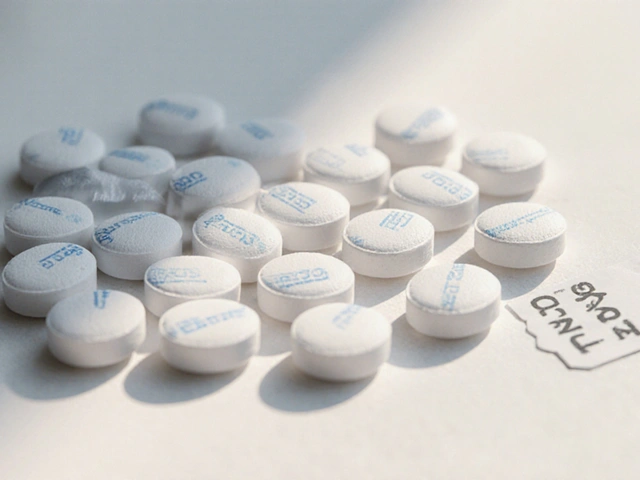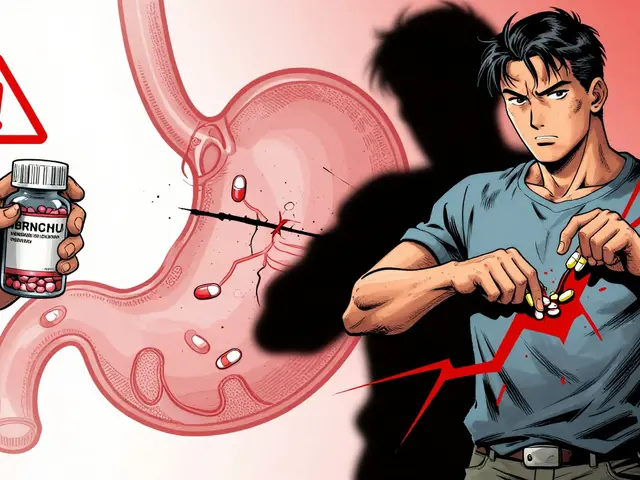Dry Mouth Oral Care Routine: Step‑by‑Step Guide for a Comfortable Smile
Learn how to build a dry‑mouth‑friendly oral care routine that protects teeth, reduces discomfort, and keeps your smile healthy.
Dry mouth, also called xerostomia, can make talking, eating, and smiling uncomfortable. It often feels like your tongue is stuck to the roof of your mouth and you keep needing water. The good news is that a few everyday habits and cheap products can bring back moisture fast.
Many things can lower saliva production. Medications for allergies, anxiety, or high blood pressure are common culprits. Breathing through your mouth, especially while you sleep, dries the tissue overnight. Health conditions such as diabetes or Sjögren’s syndrome also hit the salivary glands.
When saliva drops, the protective coating on your teeth disappears. That’s why you may notice more cavities, sore spots, or a bad taste. Recognizing the cause helps you pick the right fix.
First, stay hydrated. Sip water throughout the day instead of waiting until you’re thirsty. A steady flow keeps your mouth moist without flooding it.
Chewing sugar‑free gum or sucking on a sugar‑free lozenge triggers the brain to make more saliva. Look for products with xylitol because it also fights cavities.
If you use a mouthwash, choose one without alcohol. Alcohol strips moisture and can make the problem worse. There are alcohol‑free rinses that contain glycerin or aloe to coat the mouth.
Over‑the‑counter saliva substitutes are another easy option. They come as sprays, gels, or lozenges and create a thin film that feels like natural saliva. Apply them before meals or at bedtime for the best effect.
Limit drinks that dry you out. Coffee, black tea, and sodas pull water from your mouth. If you love these drinks, add a splash of milk or use a straw to reduce contact with your teeth.
Don’t forget your diet. Crunchy fruits and veggies such as apples and carrots stimulate chewing and increase saliva flow. Avoid salty snacks that can leave a dry coating.
For night‑time relief, use a humidifier in your bedroom. Adding moisture to the air helps keep your mouth from drying while you breathe through your mouth.
If you wear dentures, clean them daily and make sure they fit well. Poorly fitting dentures can irritate the gums and worsen dryness.
Finally, talk to your doctor or dentist if dry mouth sticks around. They can check if a medication is the cause and may suggest a prescription saliva booster.
Putting a few of these habits into your daily routine can turn a dry, uncomfortable mouth into a comfortable one. Try one tip at a time, see what works best, and enjoy the relief.
Learn how to build a dry‑mouth‑friendly oral care routine that protects teeth, reduces discomfort, and keeps your smile healthy.

Phantom limb pain affects 60-85% of amputees and is caused by brain rewiring, not psychology. Mirror therapy and medications like gabapentin and amitriptyline are proven treatments that help retrain the nervous system and reduce chronic pain.

Learn how to safely buy cheap generic tetracycline online, check pharmacy legitimacy, understand dosage, side effects, and avoid scams.

As a responsible user of chloramphenicol, I've learned the importance of proper storage and disposal. To maintain its effectiveness, it's crucial to store it in a cool, dry place, away from direct sunlight and heat. Also, always make sure to keep it out of reach of children and pets. When it's time to dispose of expired or unused chloramphenicol, I follow my local guidelines, such as returning it to a pharmacy or a designated collection site. This way, I'm taking care of both my health and the environment.

Combining blood thinners with NSAIDs like ibuprofen or naproxen can double or triple your risk of dangerous internal bleeding. Learn why this common drug mix is so risky and what safer alternatives exist.

Acetaminophen is safe when used correctly, but accidental overdose is common and can cause severe liver damage. Learn how to avoid hidden sources, recognize overdose signs, and protect your liver with simple, actionable steps.
